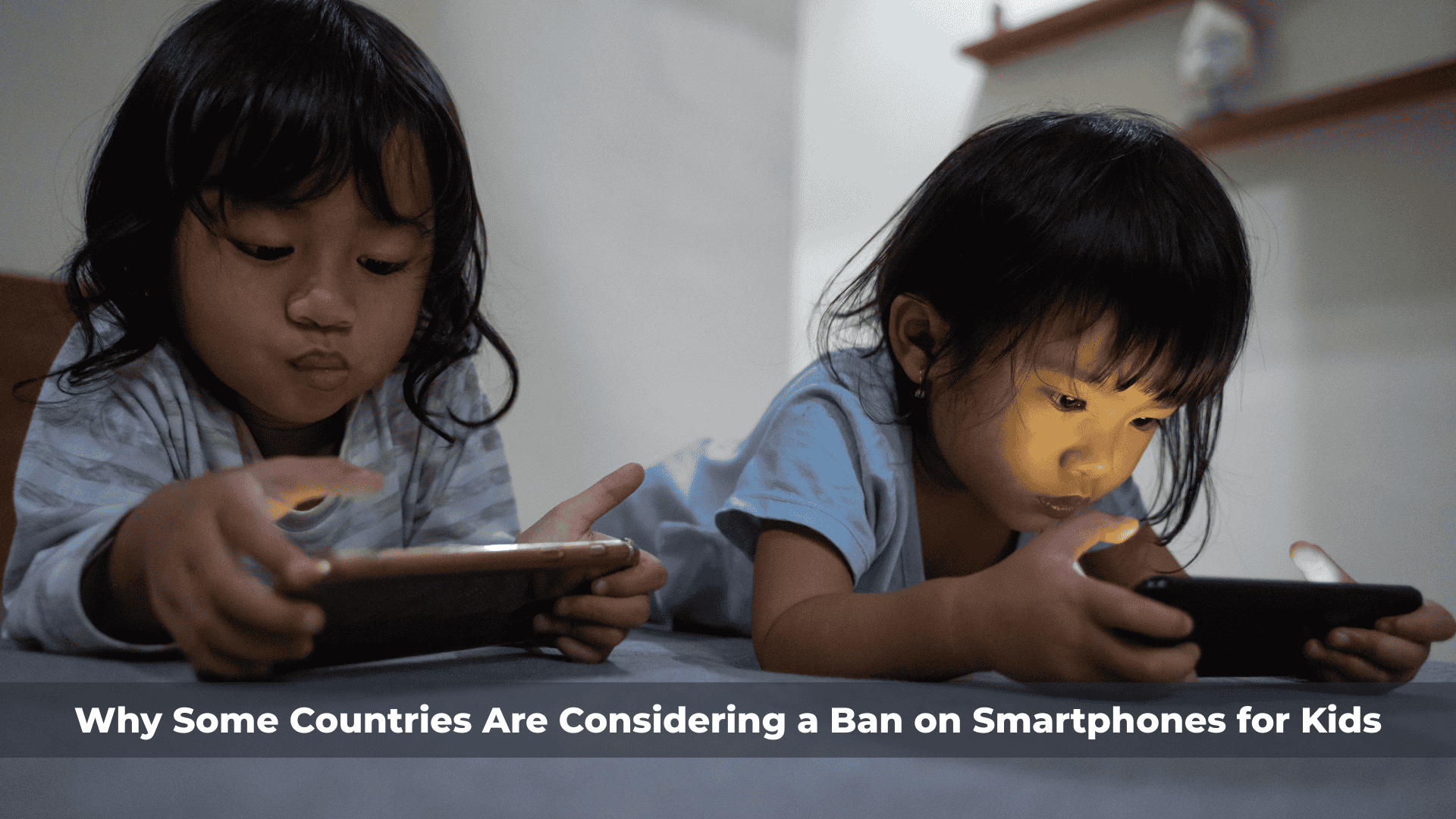The debate over children’s smartphone use is intensifying worldwide, with some countries considering or implementing restrictions on smartphone access for young users. Concerns over mental health, academic performance, and social development have led policymakers to take action. But what’s driving these potential bans, and are they truly necessary?
Key Reasons for the Push to Ban Smartphones for Kids
1. Mental Health Concerns
- Studies suggest that excessive screen time is linked to higher rates of anxiety, depression, and sleep disorders in children and teens.
- Social media, in particular, has been associated with low self-esteem, cyberbullying, and unrealistic beauty standards.
- A growing body of research indicates that limiting smartphone use can improve focus, emotional well-being, and social skills.
2. Academic Disruptions
- Smartphones are a major distraction in classrooms, leading to decreased attention spans and lower academic performance.
- A study from the London School of Economics found that schools banning smartphones saw higher test scores, particularly among struggling students.
- Teachers report that unrestricted smartphone use affects critical thinking, problem-solving, and in-person communication skills.
3. Social Development and Real-World Interaction
- Many psychologists argue that excessive screen time reduces face-to-face interaction skills, empathy, and emotional intelligence.
- Children who spend too much time on devices may struggle with developing healthy relationships and effective communication habits.
4. Exposure to Harmful Content
- Unfiltered access to the internet exposes children to inappropriate content, misinformation, and online predators.
- Platforms like TikTok and Instagram have been criticized for promoting harmful trends and addictive algorithms.
5. Physical Health Risks
- Extended smartphone use contributes to eye strain, poor posture, and disrupted sleep patterns.
- Blue light exposure before bed interferes with melatonin production, making it harder for kids to fall asleep.
- Some studies even suggest a link between excessive screen time and obesity due to reduced physical activity.
Which Countries Are Considering Smartphone Bans for Kids?
1. France
- Policy: French schools have banned smartphones for students under 15 to improve focus and well-being.
- Outcome: Many schools report better classroom engagement and fewer distractions.
2. China
- Policy: The Chinese government has placed strict screen time limits for children, restricting gaming and social media use.
- Reasoning: Authorities believe excessive smartphone use harms academic success and mental health.
3. United States (State-Level Initiatives)
- Some U.S. states are discussing smartphone bans in schools to curb distractions and cyberbullying.
- Schools in Florida and Ohio have implemented phone-free classroom policies.
4. United Kingdom
- Proposed Restrictions: Government officials are considering regulations to limit children’s access to social media and smartphones.
- Debate: While many support the idea, critics argue that banning smartphones may not be practical in modern education.
5. India
- Some Indian states have restricted smartphone use in schools due to concerns over screen addiction and declining academic performance.
Arguments Against Smartphone Bans for Kids
Not everyone agrees that banning smartphones is the best approach. Critics argue that:
- Technology is an essential part of modern education, and banning smartphones could limit learning opportunities.
- Parental control and digital literacy education might be more effective than outright bans.
- Smartphones provide safety benefits, allowing kids to contact parents in emergencies.
- A ban doesn’t address the root problem—improper use of smartphones rather than the devices themselves.
Finding a Balance: Possible Solutions
Instead of outright bans, some experts suggest:
- Screen Time Limits: Setting daily smartphone usage caps for children.
- Parental Monitoring Apps: Helping parents regulate online activity.
- Phone-Free Classrooms: Allowing smartphones outside of class but banning them during lessons.
- Digital Literacy Programs: Teaching kids responsible smartphone use instead of prohibiting it.
Conclusion
The debate over smartphones for kids is complex, with valid arguments on both sides. While excessive smartphone use can negatively impact mental health, learning, and social skills, a complete ban may not be the best solution. Instead, many experts advocate for balanced, responsible smartphone use with clear guidelines.
What do you think—should governments ban smartphones for kids, or should parents and schools manage their use instead?

